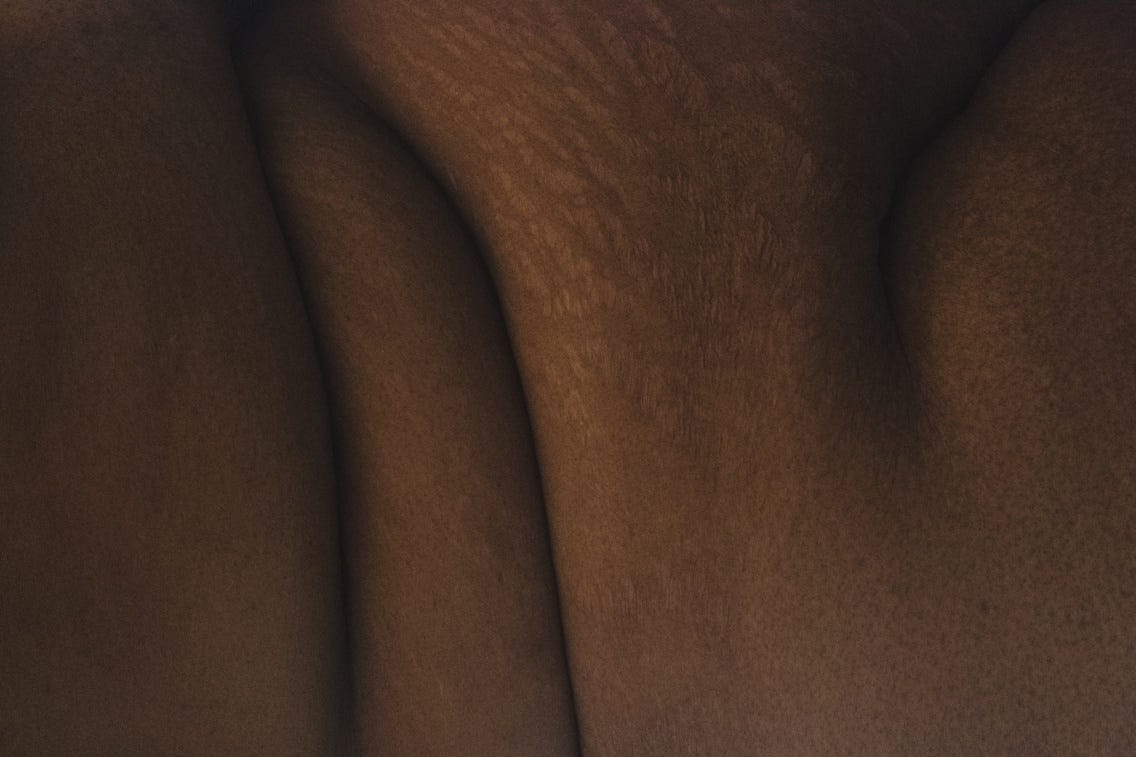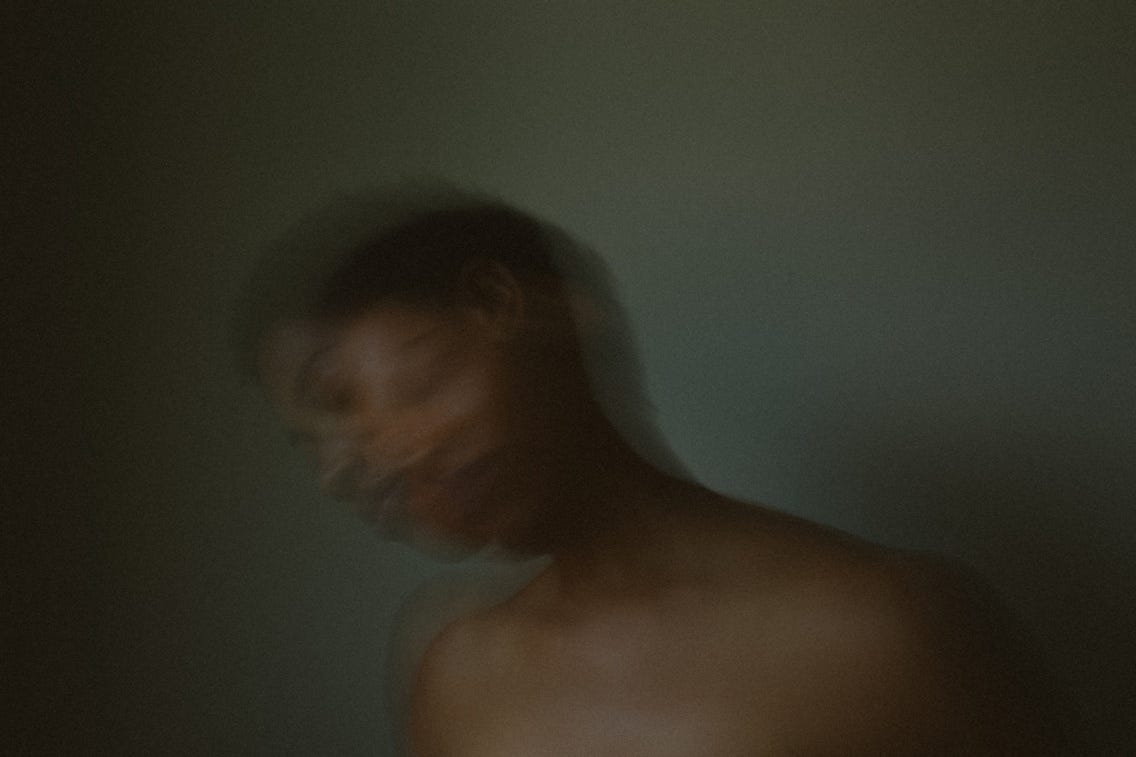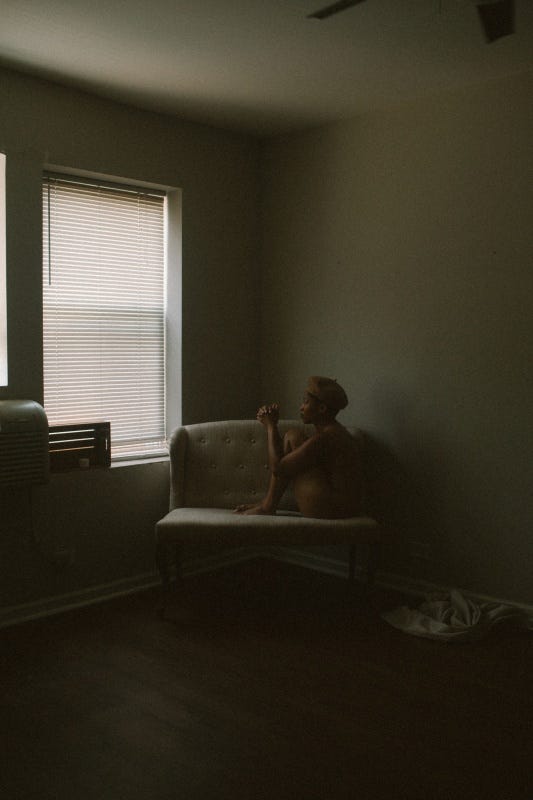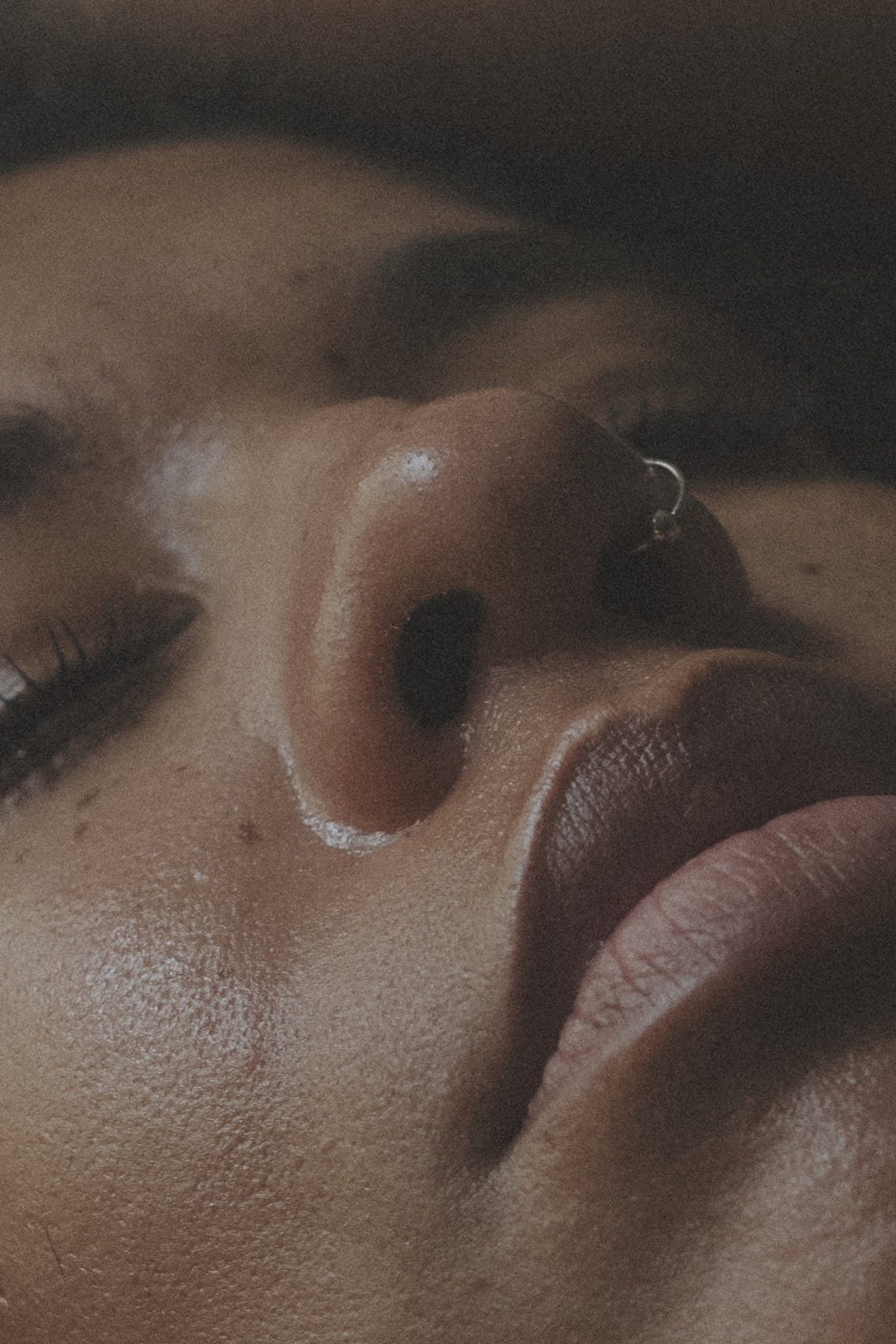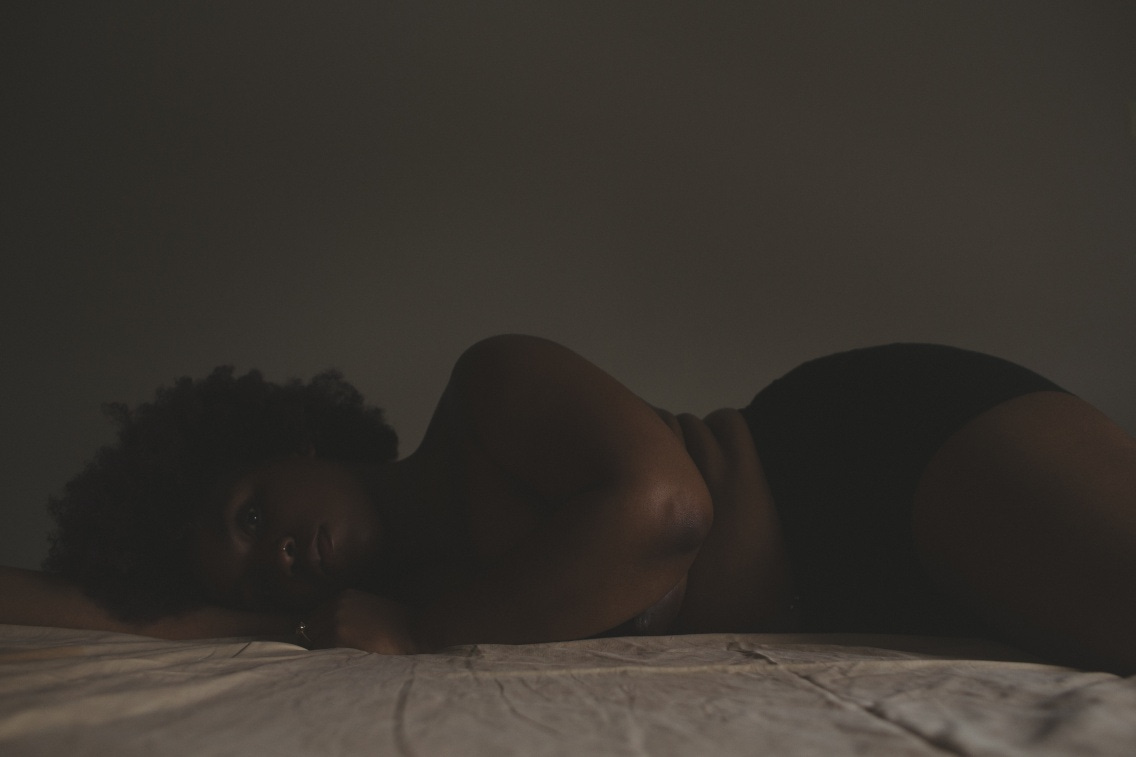the body: a home for love
the body: a home for love is a photography series by Deun Ivory chronicling the narratives of black women (including the photographer) who have endured sexual assault. It is meant to be a visual storytelling of how pain and patriarchy manifest in the lives of young black girls.
The photographs are deliberately dull - lowered contrast, plain backgrounds, in essence - a documentation of skin. I say this because there are minute differences between the temperature of the room and that of the subject’s skin. This makes you pause and truly search the picture.
Accompanying the pictures are a series of interviews detailing the trauma of the assault - what leads to it, and what follows. The interviews confirm a ubiquitous lack of male accountability in all patriarchal structures, and the insidious methodologies used to shame and blame victims.
Ivory wants us trace the trauma on these women’s faces, as well as acknowledge the quiet halo of resilience around them. The most important part of these women’s bodies is where they make space in it - for love, joy, beauty and comfort.
Trauma is abstract. I pause and think about my own sexual assault, and how well I have trained myself to not dwell in it. I fear that this dwelling will become an irrefutable evidence of my pain. For all these years of being told to not let my anger lurk- I pretend I don’t feel it anymore. Of course, the anger is always there, looking for an outlet, for an unapologetic retribution. Coming back to the body: a home for love, notice how the photographs depict an aftermath - faces brimming with stories. I wonder how long their trauma has been biding its time, I wonder how these women looked like in their own state of anger, and if that anger ever bit their tongue in the fear of being labelled as paranoia.
We don’t like angry women, we only like sad women.
Upon looking at these pictures again and again, I do not see suffering silhouettes any more - I see indestructibility.
Deun Ivory complicates choreographies of passivity. The woman in the room, the woman on the bed, the woman abused, the woman rebuilt. We can celebrate that - the ability to rebuild.

